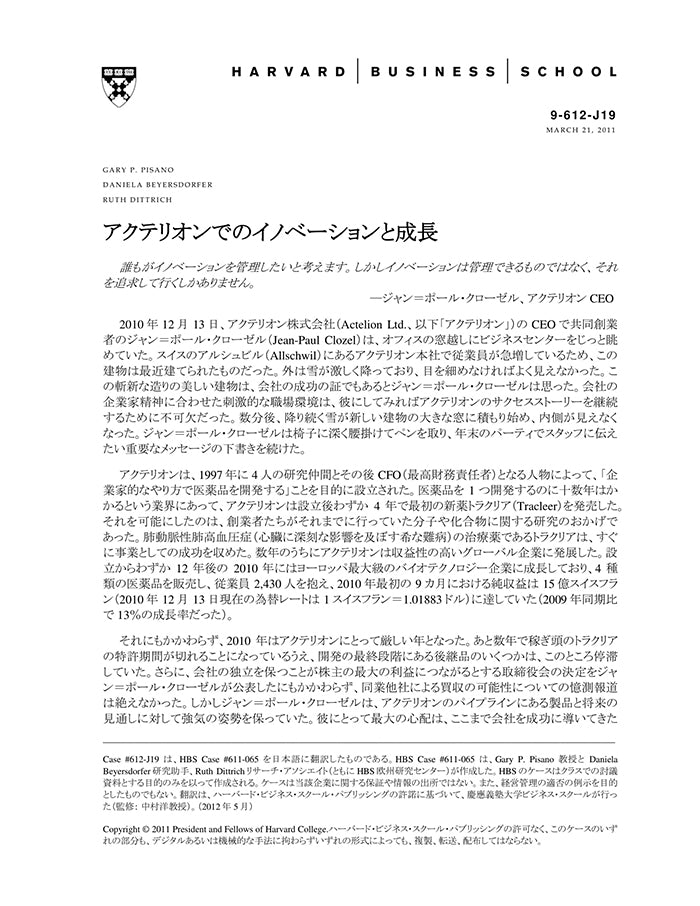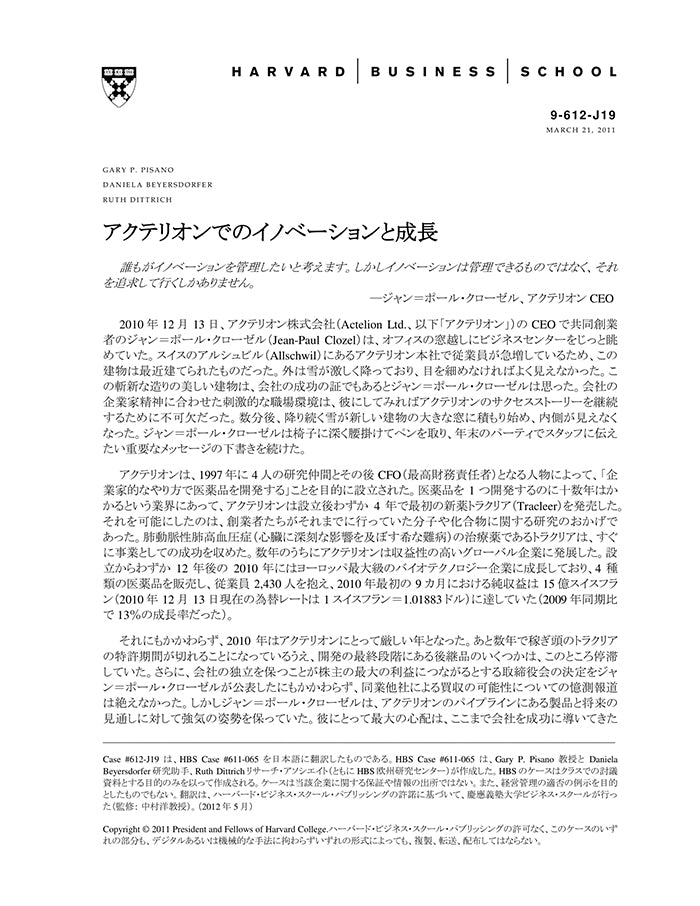アクテリオンでのイノベーションと成長
受取状況を読み込めませんでした
2010年後半、スイスのバイオテクノロジー企業であるアクテリオンのCEO、ジャン=ポール・クローゼルはこの10年間の成功を振り返っていた。1990年代後半に研究主導型の組織で新薬を見つけるため、彼が同僚のサイエンティスト数名と始めた小さな会社は、売上高で欧州最大のバイオテクノロジー企業の1つに成長していた。彼らは主に希少疾患用医薬品トラクリアを世界中の市場で販売したことで成功をおさめた。しかしながら、あと数年でトラクリアの特許が切れることや、最近後期パイプラインにおける後退があったことにより、同社は投資家からの圧力にさらされていた。クローゼルは同社の新薬開発能力については自信を持っていた。その能力こそが将来におけるさらなる収益拡大を約束する。一方で、彼は企業家精神を維持し続けるにはどうすればよいか、考えを巡らせていた。2,400人以上の社員がいて、さらに現在も増え続けている会社において、特に、フラットな階層構造とイノベーションを追求する研究者の自由さは必須条件だと考えていた。 In late 2010, Jean-Paul Clozel, CEO of the Swiss biotech pharmaceuticals firm Actelion, looks back on a successful decade. The small venture that he had started with a few of his scientist colleagues in the late 1990s to discover novel medicine in a research-driven organisation had grown into one of Europe's largest biotech firms by revenues. Their success was mainly founded on their orphan indication drug Tracleer, which Actelion sold and marketed worldwide. However, Tracleer's looming patent expiry in a few years and recent late-stage pipeline setbacks had put the company under pressure from investors. While Clozel was confident in their ability to deliver future drugs that could secure further growing revenue streams, he wondered how to maintain their entrepreneurial culture that he saw as a prerequisite for this--particularly their lean hierarchy and researchers' freedom to follow innovation where it led them--in a company of more than 2,400 people which continued to grow.
【書誌情報】
ページ数:22ページ
サイズ:A4
商品番号:HBSP-612J19
発行日:2011/3/21
登録日:2012/6/20


